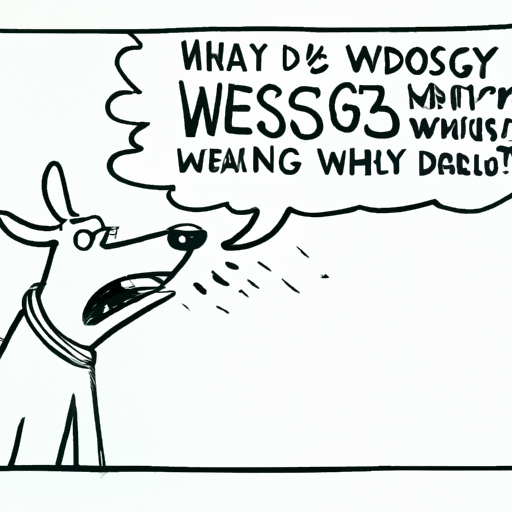1. Understanding Reverse Sneezing
You might have seen your dog making a peculiar noise, a sort of a snorting sound, and wondered what on earth was happening. This phenomenon is known as a “reverse sneeze”. Unlike a regular sneeze where air is expelled out, a reverse sneeze involves rapid, forced inhalation. It’s a bit like your dog is trying to catch their breath in a series of quick, successive inhales.
- It’s often a response to an irritant in the throat, nose, or sinuses.
- It can be triggered by excitement, eating or drinking, exercise, or a pulling leash.
Your dog might stand still, extend their neck, and make loud snorting sounds. It can certainly be startling, but it’s usually nothing to worry about.
2. Causes of Reverse Sneezing
Reverse sneezing has a variety of potential causes. Among them, the most common are:
- Allergens: Dust mites, pollens, cigarette smoke, or strong odors can trigger a reverse sneeze.
- Exercise: A bout of play or a brisk walk can sometimes cause a reverse sneeze.
- Leash pressure: Some dogs might reverse sneeze if their collar is too tight or if the leash pulls on their neck.
| Cause | Description |
|---|---|
| Allergens | Usually environmental, like dust, pollen, or smoke |
| Exercise | Often occurs after a bout of play or walk |
| Leash Pressure | Can occur if the leash pulls on the dog’s neck |
3. How to Handle Reverse Sneezing
While reverse sneezing is not a medical emergency, it can be distressing to witness. Here’s what you can do to help:
- Keep calm: Your dog will pick up on your anxiety, so it’s important for you to stay calm.
- Gentle massage: Rub your dog’s throat gently. This can soothe them and might help stop the sneezing.
- Distraction: Distract your dog with their favorite toy or a treat. This can interrupt the reverse sneezing episode.
4. When to Seek Veterinary Help
While occasional reverse sneezing is normal, frequent bouts could indicate an underlying problem. You should contact your vet if:
- Your dog reverse sneezes frequently.
- The reverse sneezing is accompanied by other symptoms like discharge from the nose, a cough, or difficulty breathing.
- Your dog seems distressed or in pain.
5. Frequently Asked Questions
Q: Is reverse sneezing harmful to my dog?
A: Usually, no. It’s a common phenomenon and typically harmless.
Q: How can I prevent my dog from reverse sneezing?
A: Avoiding known triggers can help. If it’s frequent, consult with your vet.
Q: Should I be alarmed if my dog reverse sneezes during a walk?
A: Not necessarily. However, if it happens often, you might want to check with your vet.
Remember, as a caregiver, your calm and knowledgeable response during such events can make a world of difference to your pet. So, stay informed and keep caring!



